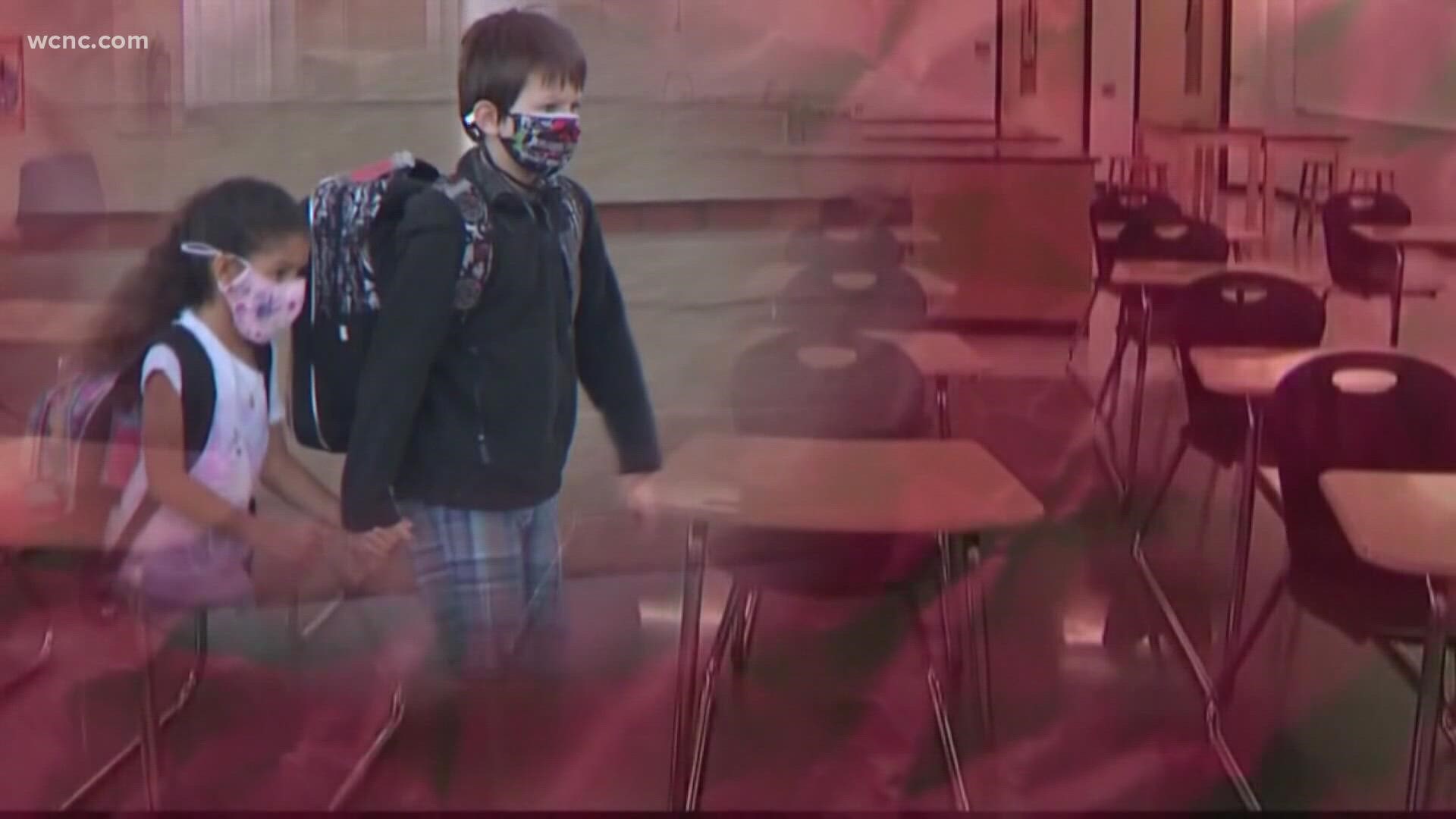MECKLENBURG COUNTY, N.C. — Health experts in North Carolina are worried about a ripple effect after several local school districts made changes to COVID-19 safety protocols this week.
On Tuesday night, the Lincoln County Board of Education voted to make masks optional again starting on Sept. 29.
And on Monday in Union County, the school board voted to relieve school employees of contact tracing duties and change quarantine protocols. They did not discuss masks, which are still optional in the school district.
Mecklenburg County shares a border with both, and if these changes lead to a spike in cases, that border won’t stop the virus from spreading.
Leading doctors in the state are sounding the alarm about the changes.
“It seems like a strange time to abandon the things that have been proven over and over again in school systems around the country to be effective,” Dr. David Priest with Novant Health said.
This comes as nationwide, there’s a rise in COVID-19 cases among kids. Now, every one in four infections is in a child.
The director of Novant Health’s Hemby Children’s Hospital said there will be consequences.
“More kids are going to get it, more adults are going to get it and that’s going to have obviously some real effects on schools but also on hospitalizations and resources,” Dr. Eugene Daugherty said.
Those consequences could easily cross county lines.
“I definitely think we would potentially see spillover into our hospitals here,” Gibbie Harris, Mecklenburg County Health Director said.
With fewer precautions in place in Lincoln and Union County schools, there’s a greater chance for spread and for people to be unknowingly sick.
“We know we have people coming in and out every day whether that’s to work, to shop, to play, whatever it may be. If these folks are coming from outside our community and have been exposed, it’s possible they could be exposing people here as well,” Harris said. “Of course, that’s concerning."
While kids mostly have less severe cases of COVID-19 than adults, everyone reacts differently. Right now, pediatricians are seeing an unseasonable trend. The weather is still warm but more kids are needing doctor's appointments, emergency department visits, or hospital admissions.
“We’re seeing coinfection so we're seeing COVID, we're seeing other infections like RSV,” Daugherty said.
In the first week of September in North Carolina, more than 11,000 children tested positive for COVID-19. That’s more than in all of June and July of this year.
"There's a lot of reasons to have some concern over this," Daugherty said. "For one, kids are always around other people kids and adults."
The rising trend also happening in Mecklenburg County in the last two weeks.
“A third of all tests that have tested positive have been among preschool, school age, and college-age kids,” Harris said.
This increase can be attributed to in-person classes and more activity in the community. Plus, people 12 and younger can’t be vaccinated yet.
Of the kids hospitalized, 95 to 99% are unvaccinated, according to Daugherty.
"I would expect those numbers are only going to increase and I think there needs to be a social awareness that if this continues, it's going to be difficult to care for all of these patients,” he said.
A vaccine for younger children could be coming soon. The CEO of Pfizer said clinical trial data for children ages 5 to 11 could be submitted to the FDA by the end of the month.
Contact Chloe Leshner at cleshner@wcnc.com and follow her on Facebook, Twitter and Instagram.

